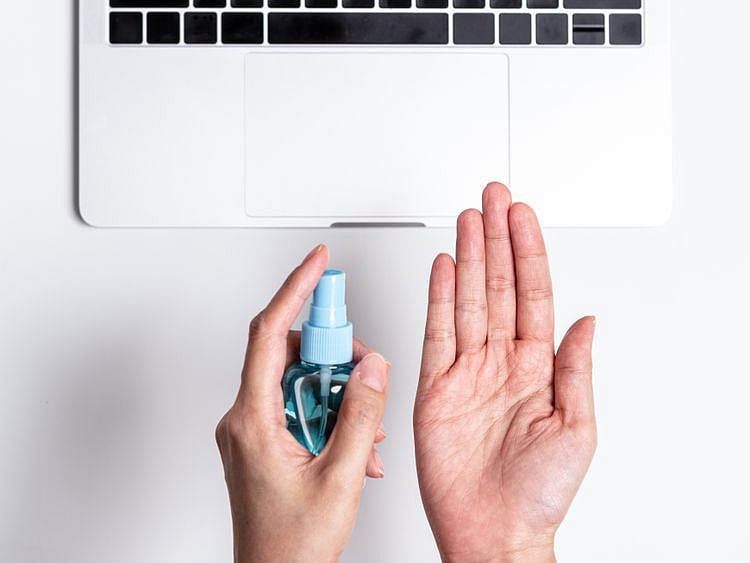While the UAE Government has launched a nation-wide disinfection programme in line with the precautionary measures taken by the country to contain the spread of COVID-19, it is important for us as individuals to also make sure that our personal space and belongings are clean and virus-free.
According to the World Health Organisation (WHO), studies suggest that coronaviruses may persist on surfaces for a few hours or up to several days. This may vary under different conditions, such as the type of surface, temperature and humidity.
Dr Hind Al Awadhi, Head of Health Promotion and Education section at Dubai Health Authority (DHA), advises the public to regularly clean and disinfect personal spaces and belongings.
Disinfecting your home
Dr Al Awadhi said surfaces such as floors, carpets and curtains should be cleaned with regular household cleaners while things that are touched on a daily basis such as tables, door handles, light switches, controllers, keyboards, toilets, faucets and sinks should be regularly cleaned with disinfectant products that contain at least 60 per cent alcohol. If toilets are shared they should be sterilised after each use.
She added that people should make sure to maintain the quality of air at home through continuous ventilation.
Disinfecting personal items
Dr Al Awahdi said people should avoid exchanging personal items such as cups and towels, adding that they need to clean them regularly and after each use with soap and water or with disinfectants.
She said that personal items that are most prone to contamination include mobile phones, personal bags, watches and accessories, keys, headphones, pens and notebooks, smart devices, glasses as well as money, credit cards and wallets.
“You can sterilise these items after each use with disinfectants and sterilisers, provided that they contain at least 60 per cent alcohol. Please don’t forget to clean children’s toys on a daily basis.”
Disinfecting cars
“I first want to remind the public that they should abide with the government’s guidelines to not leave their houses during the disinfection programme and only leave in the permitted timings when it is absolutely necessary, such as for stocking up on food and medication or if they require emergency care.”
In the car, Dr Al Awadhi advises the public to wash their hands before and after driving, adding that it is a good habit to acquire, as it will keep the steering wheel and other surfaces in your vehicle clean.
“You should sterilise surfaces inside the vehicle with disinfectants containing at least 60 per cent alcohol. The surfaces that you most commonly contact in your vehicle are the steering wheel, ignition buttons, the seats, shift stick, armrest of the driver and the seat adjuster.
Disinfecting the workplace
If you are still going to work, Dr Al Awadhi said that employees and employers need to take all neccessary health and safety precautions.
“In addition to practicing physical distancing and maintaining at least two metres’ distance from one another, it is also important to ensure that the workplace has an effective and sustainable ventilation system and that the offices are cleaned periodically (at least twice), this includes roofs, chairs, door handles, curtains and joint contact points, using appropriate disinfectants.”
She added that the workplace should ensure strict disinfection and sterilisation procedures are applied in toilets, washrooms, prayer rooms, elevators and common use facilities.
“Make sure to practice good personal hygiene standards and wash your hands regularly and don’t forget to adhere to coughing and sneezing etiquette. Make sure to disinfect your personal space — this includes your desk, phone, pens and notebooks and also replace glass cups with single-use paper cups.”
Sign up for the Daily Briefing
Get the latest news and updates straight to your inbox
Network Links
GN StoreDownload our app
© Al Nisr Publishing LLC 2026. All rights reserved.
